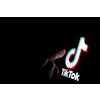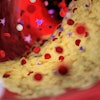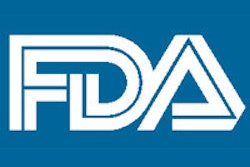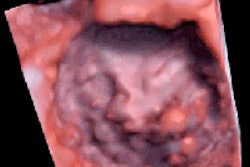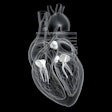Dear AuntMinnie Member,
The other shoe dropped yesterday in the ongoing debate over the safety of gadolinium-based MRI contrast when the U.S. Food and Drug Administration (FDA) announced that it has opened an investigation of the agents.
The FDA specifically is looking into reports that gadolinium deposits have been found in the brains of patients who have received MRI contrast, in some cases years after the scans took place. The FDA noted that it's still unclear whether the deposits have any health effects, but it did advise healthcare providers to limit gadolinium contrast to cases where the contrast is necessary -- and to reassess the need for repeat scans.
This isn't the first time that questions have been raised about gadolinium's safety. In 2006, gadolinium contrast was linked to the development of nephrogenic systemic fibrosis (NSF), a debilitating and sometimes fatal disorder. But healthcare providers were able to dramatically cut the number of NSF cases by limiting gadolinium use in patients with renal insufficiency.
It's impossible to tell how the current controversy will sort out, but read all about the FDA's probe by clicking here. Make sure to visit our MRI Community for ongoing coverage of this important issue, as well as a new article on how to reduce repeat MRI scans -- and lost revenue -- caused by patient motion.
Guerbet to buy Mallinckrodt
The FDA's gadolinium probe wasn't the only story rocking the contrast industry yesterday. On the business side, French contrast developer Guerbet surprised industry observers by announcing its plan to acquire the contrast and injector business of Mallinckrodt, one of the oldest names in contrast media.
Guerbet plans to pay $270 million for the Mallinckrodt business. The deal will double Guerbet's annual revenues and give the company a strong position in the U.S. to complement its activities in Europe.
For example, Guerbet will be able to use Mallinckrodt's distribution network to sell its products in the U.S., including its Dotarem MRI contrast agent. Dotarem was approved in the U.S. in 2013, and Guerbet has been promoting the agent's safety profile -- an important consideration given this week's news on gadolinium. Learn more about the deal by clicking here.
Mayo scoring tool
Finally, check out our Ultrasound Community for a story on how researchers from the Mayo Clinic in Rochester, MN, developed a new predictive scoring system that can reliably estimate which heart disease patients in the critical care unit may die in the next three years.
The tool uses echocardiography scans and clinical data to estimate risk, with a special focus on noncardiovascular risk factors. Find out how it works by clicking here, or visit the community at ultrasound.auntminnie.com.


